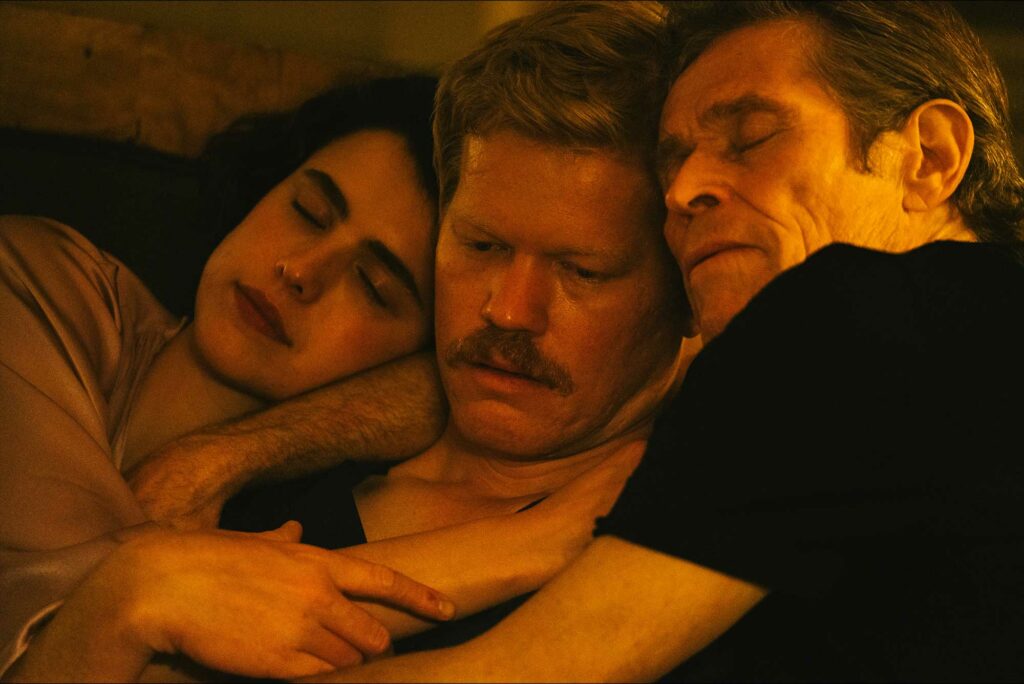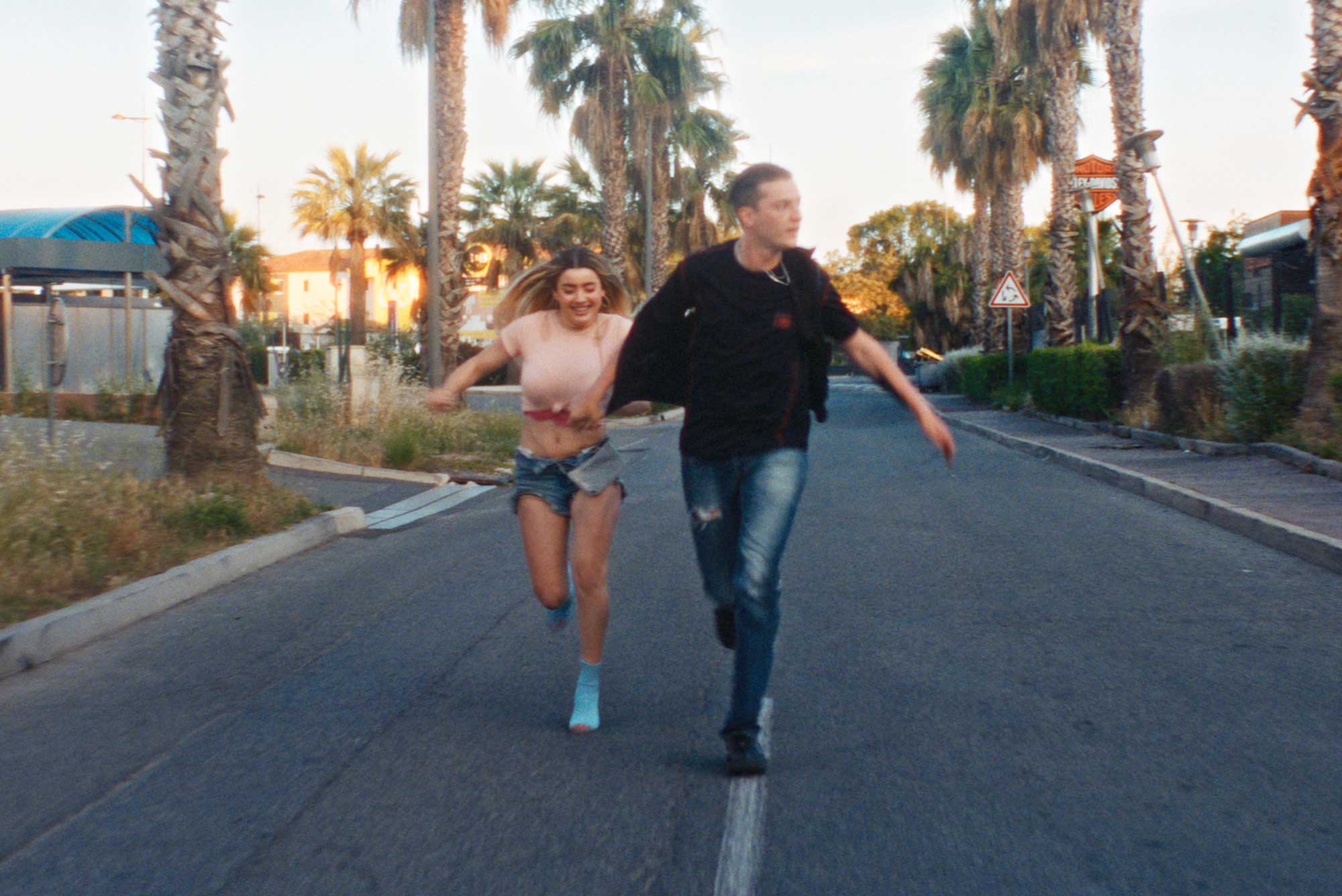Words by JANE CROWTHER
As soon as a grainy 70s title card comes up declaring ‘Nicolas Cage is The Surfer’ you know what kind of movie director Lorcan Finnigan is tapping into – and when Cage begins his voiceover introduction, extolling the power of the ocean, you know he’s come to serve. ‘You can’t stop the energy of a wave,’ he muses in his trademark laconic drawl, ‘you either surf it or you wipe out’. The energy Cage is riding in this lean self-aware slice of fish-out-of-water action that explores emasculation is one that leaves nothing on the field as the star is reduced to a raving mess after a run-in with unwelcoming surfers in Australia.
The unnamed board rider is an American returning to his childhood home on a beautiful stretch of Oz oceanside real estate in the hope that buying the family manor will be the salve he needs to mend his strained relationship with his teen son and soothe the pain of his wife wanting a divorce. On the evening of closing the deal, he drives in his nice suit, nice car and nice sunglasses to the car park overlooking the beach with his kid, sure that catching a wave will bond them. The local surfers, led by Julian McMahon’s Scally, aren’t keen on sharing the break, their aggression and threats enough to put any ordinary individual right off the area and surely attracting a dreadful Zillow/Zoopla rating.
But rather than take his $100,000 elsewhere, the surfer returns to the beach to confront the bullies, unravelling spectacularly as his possessions are taken from him, his dehydration in the punishing Aussie sun loosens his reason and childhood trauma makes him both vulnerable and by turns, fearsome. A series of misfortunes means he’s stuck in the car park, going full survival mode as he rages against the local machine. By the time he’s screaming ‘eat the rat!’ Cage has gone full D-Fens in Falling Down and is an eye-rolling, tweaky shell of his former persona – as deliciously unhinged as his ‘not the bees!’ moment in The Wicker Man or his exploding testicle in Prisoners Of The Wasteland. Noone melts down quite as theatrically as Cage and Finnigan mines that journey for all its worth to entertaining effect. And we haven’t even got to the drugs taking and psychedelia yet…
But it’s not just a Rambo-esque one-man-against-the-world narrative, McMahon’s smarmy gang leader is driven by a thoroughly modern impulse, his motivation signposted but nonetheless elevating him from a standard local thug. But really he’s just there to facilitate Cage in saying ‘dude’ in his inimitable manner and stealing all the focus in a movie that was perfect for Cannes’ cultish midnight screening slot. Never mind that you never see the surfer actually surf – take his advice and just go for the ride.
Lorcan Finnigan’s The Surfer starring Nicolas Cage and Julian McMahon is screening at the 77th Cannes Film Festival. Release date TBC










